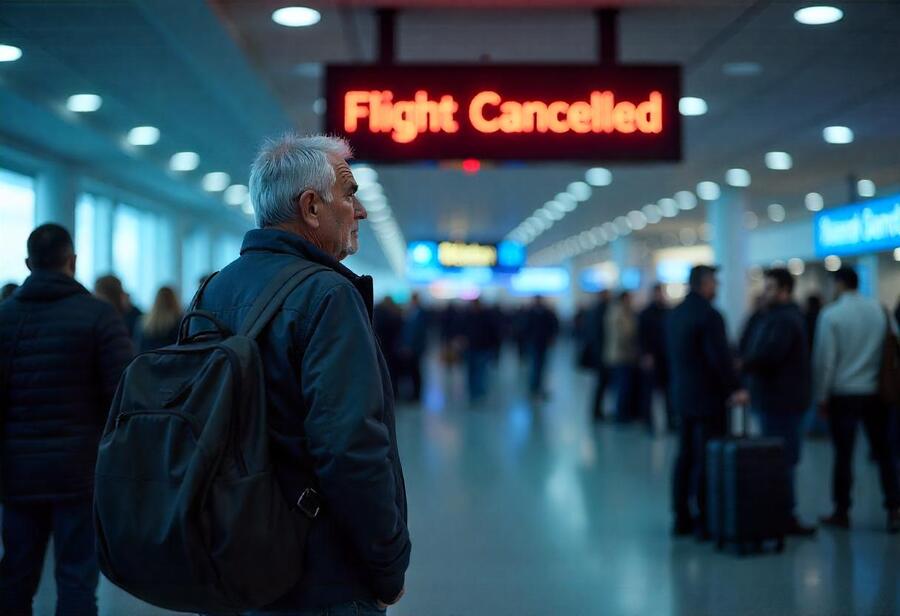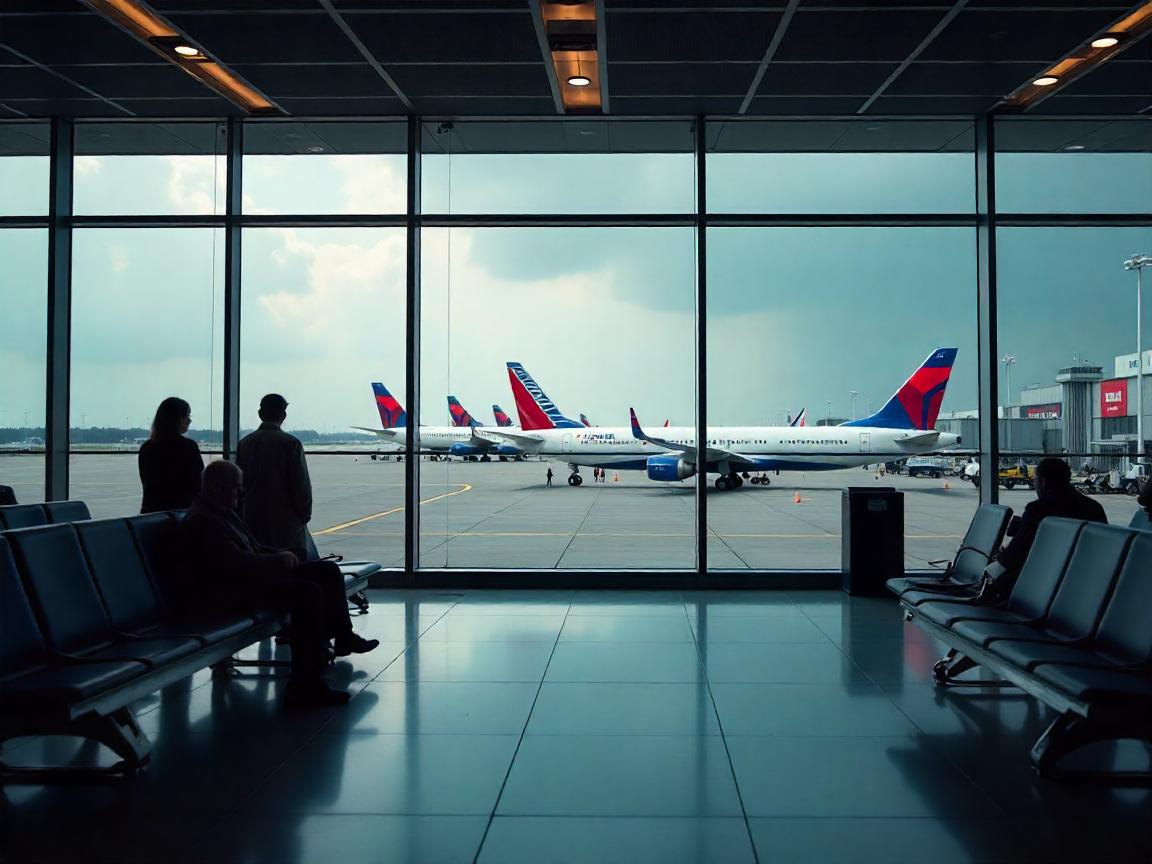American, United, And Delta Air Temporarily Freeze Middle East Travel As Tensions Between Israel, Iran, And Iraq Escalate
Friday, June 20, 2025

In response to the escalating tensions between Israel, Iran, and Iraq, major U.S. airlines American, United, and Delta have temporarily suspended all flights to and from the Middle East. This precautionary measure comes as the security situation in the region becomes increasingly volatile, with potential risks to passenger safety and aviation operations. The airlines’ decision aims to safeguard travelers amidst growing concerns over airspace restrictions and heightened instability, ensuring that the routes remain secure until the situation stabilizes.
Several leading U.S. airlines have announced temporary suspensions of their services to the Middle East as the Israel-Iran conflict intensifies. As the situation worsens, air travel routes are being severely impacted, leaving travelers uncertain about the future of their trips and the timeline for the resumption of flights to the region.
United Airlines has announced the suspension of its daily flights between Newark Liberty International Airport and Dubai, citing the escalating tensions in the Middle East as the primary reason for the disruption. The airline has not provided a specific date for the resumption of services, further adding to the uncertainty faced by passengers. This route, operated exclusively from Newark, highlights how the ongoing conflict is affecting international travel between the U.S. and the Middle East.
The suspension comes as airlines across the globe express growing concerns about the safety of flight paths near the conflict zones. Although United has not officially detailed the precise cause for halting the service, it is widely assumed that the proximity of the conflict to key air corridors in the region is a major factor in the decision.
American Airlines has joined its counterparts in suspending flights to the Middle East, specifically halting its services between Philadelphia International Airport and Doha, Qatar. This suspension, effective immediately, will remain in place until June 22, 2025. The last flight to Doha departed early Thursday, marking the temporary cessation of one of the airline’s key Middle East routes.
Though the airline has not provided further details on the suspension, it has confirmed that the decision was made as a precautionary measure amid ongoing safety concerns in the region. This disruption has forced many travelers to adjust their plans as alternative travel arrangements become necessary.
Delta Air Lines has also announced a suspension of its flights between New York’s John F. Kennedy International Airport and Tel Aviv, Israel. The suspension, which started last week, will remain in effect until August 31, 2025. The decision follows the closure of Israeli airspace, with Ben Gurion International Airport, Israel’s primary international gateway, temporarily shut down due to the escalating conflict.
While Delta has not provided specific reasons for the suspension, the closure of airspace over Israel has created major logistical issues for airlines and passengers alike, making it impossible for regular operations to continue without significant risks.
The effects of the Israel-Iran conflict are not limited to U.S. airlines. Major international carriers such as Emirates, Etihad Airways, and Lufthansa have also canceled or altered several routes within the region. These disruptions have been closely tracked by aviation industry news outlets like AviationA2Z, which reported that the cancellations stemmed from the heightened conflict following Israel’s launch of “Operation Rising Lion” against Iran.
Israel began its military operations in late May, targeting Iran’s nuclear and military infrastructure after intelligence suggested that Iran was nearing the development of nuclear weapons. Iran’s subsequent missile strikes on Israeli targets have exacerbated the conflict, prompting regional airspace closures over Israel, Iran, Iraq, and Jordan, further complicating air travel in the area.
As the conflict escalates, a number of countries have shut down their airspaces to commercial flights, intensifying the disruption to global air travel. Israel’s Ministry of Transportation has announced that Israeli airspace will remain closed indefinitely, with no immediate plans to reopen it. This decision has forced airlines to revise their flight schedules, either rerouting or suspending services altogether.
The U.S. Embassy in Jerusalem has issued a Level 4 travel advisory to U.S. citizens in Israel, advising against travel to the country due to “armed conflict, terrorism, and civil unrest.” The State Department is actively working on facilitating the departure of U.S. citizens from Israel, with some evacuations being carried out via cruise ships. Similarly, Iran remains under a Level 4 advisory due to risks of “terrorism, civil unrest, kidnapping, arbitrary arrest, and wrongful detention.”
The ongoing conflict continues to affect the plans of countless travelers, with many forced to deal with canceled flights or altered itineraries. Airlines, including American, United, and Delta, are working to assist affected passengers, but the uncertainty surrounding the conflict has made it difficult for airlines to provide definitive timelines for when services will be restored.
For the broader aviation industry, this crisis highlights the vulnerability of flight routes passing through conflict zones. Airlines are increasingly cautious about operating in regions affected by geopolitical instability, leading to more careful route planning and risk management. This shift in approach may have lasting effects on how airlines operate in and around the Middle East.
As the situation unfolds, travelers hoping to visit the Middle East or transit through the region should remain vigilant and stay informed about potential delays, cancellations, or changes to flight routes. Alternative routes and destinations may be necessary for those planning to travel to or from the region in the coming months, as the situation remains fluid.
The ongoing conflict serves as a reminder of the delicate relationship between international air travel and geopolitical instability. Airlines must balance the safety of their passengers with the operational demands of maintaining a global air network, while travelers must navigate the uncertainties caused by events beyond their control.
Amid escalating tensions between Israel, Iran, and Iraq, American, United, and Delta Air have temporarily suspended Middle East flights to prioritize passenger safety. The decision comes in response to rising security risks and airspace concerns.
The temporary halt of flights between the U.S. and the Middle East stems from the intensifying conflict between Israel and Iran, heightening security concerns in the region. As airlines adjust their schedules and work to support affected passengers, the aviation industry faces significant challenges in navigating the complex geopolitical landscape. Travelers should remain flexible and keep up-to-date on the evolving situation, as there is no immediate resolution in sight for the disruption to international air travel.











